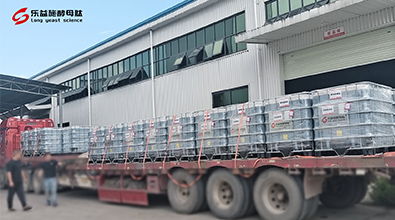What is an antiviral peptide for plants?
Viral diseases are among the most difficult challenges faced by modern agriculture, especially in high-value crops such as tomatoes and peppers. Farmers frequently encounter problems caused by Tobacco Mosaic Virus (TMV), Leaf Curl Virus, Yellowing Virus, and various mosaic viruses. These pathogens damage leaves, reduce photosynthesis, stunt growth, and ultimately cause severe yield losses. Traditional chemical pesticides provide little help because viruses cannot be killed the same way as fungi or insects. Overuse of chemicals often leads to resistance, weakens plant vigor, and disrupts ecological balance.
To address these long-standing challenges, researchers and agricultural companies have begun to focus on antiviral peptide—a new class of biological solutions that enhance the natural defense ability of plants and help them resist viral infections more effectively.

What defines an antiviral peptide in plant protection?
Antiviral peptides are short-chain peptides composed of amino acids, typically ranging from 10 to 50 amino acid residues in length. This length range enables them to form effective spatial structures, exerting antiviral functions through multiple mechanisms such as direct interaction with viruses or modulation of host immunity. Their small-molecule nature allows rapid penetration into plant tissues, enabling direct engagement with viral particles or cellular defense pathways. Such peptides can be naturally produced by plants and microorganisms, or created through biotechnology based on known antiviral sequences.
Unlike conventional antiviral sprays that attempt to attack the virus externally, antiviral peptides function by supporting and strengthening the plant itself. They help plants detect viral threats earlier, activate immune signaling pathways, and reinforce cellular structures to prevent the virus from spreading.
In other words, their role is not to “kill” the virus—but to ensure the plant becomes resilient, responsive, and capable of defending itself.

How Antiviral Peptides Work in Plants
1. Blocking Viral Entry and Movement
Some antiviral peptides act directly on viral particles or plant cell membranes. They can stabilize the plant’s epidermal tissues and form a stronger physical barrier, making it more difficult for viruses to enter new cells. This is especially beneficial for tomatoes and peppers, which are highly sensitive to leaf-surface infections such as TMV and mosaic viruses.
2. Interfering With Viral Replication
Once inside the plant, antiviral peptides can bind to viral RNA or essential proteins, thereby slowing or preventing replication. By interrupting this cycle, the virus loses its ability to spread through the plant’s vascular system.
3. Activating Plant Immune Genes
Many antiviral peptides also stimulate the plant’s innate defense mechanisms. They enhance the production of protective enzymes, antioxidants, and pathogenesis-related proteins. This results in faster responses, healthier tissues, and enhanced resistance even under stress conditions.
Together, these mechanisms form a complete antiviral defense system—one that is biological, natural, and difficult for viruses to develop resistance against.
LYS Antiviral Peptide: A Targeted Biological Solution for Virus Problems
Shenzhen LYS Ecological Technology Co., Ltd. has developed an advanced antiviral peptide technology designed specifically for crops vulnerable to virus outbreaks.
LYS antiviral peptide utilizes advanced biotechnology, combining active ingredients such as nucleoside peptides, glutathione peptides, and yeast oligosaccharides. It is designed to activate the plant immune system, strengthen cell walls, and effectively prevent the replication and spread of viruses, thereby protecting crops from viral damage.
Synergistic formulation:
- Free amino acids ≥150 g/L
- Total yeast peptide ≥340 g/L
- Nucleotide ≥15 g/L
- Glutathione ≥5 g/L
- Yeast oligosaccharides ≥30 g/L
- B + Zn ≥20 g/L

Why LYS Antiviral Peptide Works: A Dual-Action Defense Based on Immunity + Physical Protection
LYS antiviral peptide is highly effective against TMV, mosaic virus, yellowing virus, and leaf-curl virus because it strengthens plant defenses from two fundamental directions:
Immune Activation: Helping the Plant Fight Back From Within
The first layer of protection begins the moment yeast oligosaccharides in the formulation bind to specific receptors on the plant cell membrane. This interaction is not just a surface response—it serves as a biological signal that something harmful may be approaching.
Recognition at the Cell Membrane
Yeast oligosaccharides attach to plant oligosaccharide recognition receptors, triggering an early-warning response similar to how plants naturally detect pathogens.
Activation of the Salicylic Acid Pathway
This recognition event stimulates the salicylic acid (SA) signaling pathway, one of the most important immune pathways responsible for systemic acquired resistance. SA activation prepares the plant to defend not just the treated area, but the entire plant.
Defense Gene Expression
Once activated, the SA pathway boosts the expression of defense-related genes. This leads to increased production of protective enzymes, antioxidants, and antiviral proteins.
Synthesis of Disease-Resistant Substances
With defense genes activated, the plant quickly produces metabolic compounds that inhibit viral activity, reinforce tissues, and reduce cell susceptibility.
Blocking Viral Replication and Spread
Stronger immune signaling and antiviral metabolites ultimately prevent viruses from replicating and moving between cells. This is why farmers often observe visible improvement in plant vigor and leaf color within 5–7 days after application.

Physical Protection: Blocking Viruses Before They Enter the Cell
In addition to internal immune activation, LYS antiviral peptide also forms a physical defensive shield on the plant surface.
Competition at Cell Wall Receptors
Yeast oligosaccharides occupy key oligosaccharide recognition receptors on the cell wall. These receptors are the same sites that many pathogens attempt to use in early colonization.
Pathogens Fail to Colonize
When these receptors are already occupied, viruses and other pathogens have fewer opportunities to adhere or initiate infection. This significantly reduces the initial viral load entering the plant.
Reduced Viral Infection Risk
By combining receptor occupation with enhanced surface protection, the plant becomes harder for viruses to penetrate. This is especially important for tomatoes, peppers, cucurbits, and other crops with high virus susceptibility.
Dual-Effect Synergy: Stronger, Faster, and Longer-Lasting Protection
What makes LYS antiviral peptide unique is not just immune activation or physical protection—it is the synergy between them.
This comprehensive antiviral strategy—nutritional repair + immune activation + physical blockade—also reduces the risk of pesticide resistance, which has become a major issue in virus-heavy regions.

Application in the Field: Stronger Tomatoes and Peppers
Recommended usage
- Suitable for spraying, irrigation, and aerial application;Can be mixed with pesticides (plant growth regulators, insecticides,fungicides, etc.).
- Standard Dosage: Foliar application 180-300ml per acre, root application 3L per acre.
- If diluted with water, apply at 500x - 750x dilution for foliar spray. Use every 7-10 days, 2-3 times during the entire growth period.
Field Trials of Antiviral Peptides
In multiple field observations, tomatoes and peppers treated with LYS antiviral peptide showed:
- Thicker, greener leaves
- Stronger stems and improved plant vigor
- Reduced mosaic, yellowing, and curling symptoms
- Larger and more uniform fruits
- Higher resistance under hot, dry, or stressful conditions
- Overall improved yield potential
These results demonstrate the clear advantage of supporting plant immunity rather than relying solely on chemical antiviral agents.


A Sustainable Direction for Modern Agriculture
As climate pressures and viral mutation trends continue to grow, agriculture requires solutions that are both effective and environmentally responsible. Antiviral peptide offer exactly that: a natural, plant-centered approach that enhances resilience, supports biological diversity, and reduces dependence on conventional pesticides.
For growers, agrochemical distributors, and fertilizer manufacturers searching for new tools to combat the persistent problem of viral diseases in tomatoes, peppers, and other crops, antiviral peptides provide a powerful, future-ready option.
If you're looking to remain at the bleeding edge of agrarian innovation and progress your trim security techniques, consider investigating the potential of antiviral peptides. Shenzhen LYS Ecological Technology Co., Ltd, with its broad involvement in yeast protein innovation and commitment to economical agribusiness, is well-positioned to help you in this travel. Our group of specialists is prepared to collaborate on creating cutting-edge arrangements custom-fitted to your particular needs.
FAQs
Q1: How do LYS antiviral peptide differ from traditional pesticides?
A: LYS antiviral peptides provide comprehensive crop defense by integrating nutritional repair, immune activation, and physical protection in one solution. The formulation is highly stable with excellent tank-mix compatibility.They not only suppress viruses but also regulate crop growth, delivering far better overall performance than traditional antiviral agents.
In addition, the product is non-toxic, residue-free, and environmentally safe, posing no risk to humans, beneficial organisms, or the ecosystem.
Q2: What visible effects can crops show after applying LYS antiviral peptide?
A: Plants become more vigorous with enhanced immunity and long-lasting protection.
When applied preventively before viral outbreaks, antiviral peptides can achieve over 60% protection efficiency.
If symptoms have already appeared, the product can inhibit viral replication and spread—new shoots and young leaves emerge healthy with no symptoms, while the lower diseased leaves gradually recover.
Q3: How should I apply antiviral peptides?
A:
- Foliar spray: Dilute 1:500–1:750 with water.
- Root application: Apply 3L per acre.
- Suitable for any growth stage; using around three applications throughout the season delivers the best results.
Innovative Antiviral Peptide Solutions for Enhanced Crop Protection | LYS
Ready to elevate your crop protection strategies with cutting-edge antiviral peptide solutions? Shenzhen LYS Ecological Technology Co., Ltd offers state-of-the-art, environmentally friendly antiviral peptide products designed to enhance crop resilience and boost yields. Our team of experts is committed to providing tailored solutions that meet the unique needs of agrochemical manufacturers, large-scale farming operations, and agricultural distributors.
Experience the difference that our innovative antiviral peptide technology can make in your agricultural endeavors. For more information on our products and how we can support your business, please contact us at alice@aminoacidfertilizer.com. Let's work together towards a more sustainable and productive future in agriculture.
Further reading:
1. To understand the uniqueness of plant antiviral peptides, please read "What makes the LYS antiviral peptide different from chemical pesticides?".
2. In addition to peptides, yeast oligosaccharides also play an important role in virus control. Their mechanism of action is detailed in "What is the mechanism of action of yeast oligosaccharides in virus control?".
3. Understanding the environmental safety of peptide-based antiviral products is crucial before use. Relevant discussions can be found in "Are peptide-based antiviral products safe for the environment?".
References
1. Zhang, L., & Gallo, R. L. (2016). Antimicrobial peptides. Current Biology, 26(1), R14-R19.
2. Montesinos, E., & Bardají, E. (2008). Synthetic antimicrobial peptides as agricultural pesticides for plant-disease control. Chemistry & Biodiversity, 5(7), 1225-1237.
3. Keymanesh, K., Soltani, S., & Sardari, S. (2009). Application of antimicrobial peptides in agriculture and the food industry. World Journal of Microbiology and Biotechnology, 25(6), 933-944.
4. Mahlapuu, M., Håkansson, J., Ringstad, L., & Björn, C. (2016). Antimicrobial peptides: An emerging category of therapeutic agents. Frontiers in Cellular and Infection Microbiology, 6, 194.
5. Scholthof, K. B. G. (2007). The disease triangle: pathogens, the environment, and society. Nature Reviews Microbiology, 5(2), 152-156.
6. Ingham, A. B., & Moore, R. J. (2007). Recombinant production of antimicrobial peptides in heterologous microbial systems. Biotechnology and Applied Biochemistry, 47(1), 1-9.

Tell us your needs — we’ll provide the right solution for your crops and markets.

Innovating Agriculture with Yeast-Derived Amino Acid Peptides


